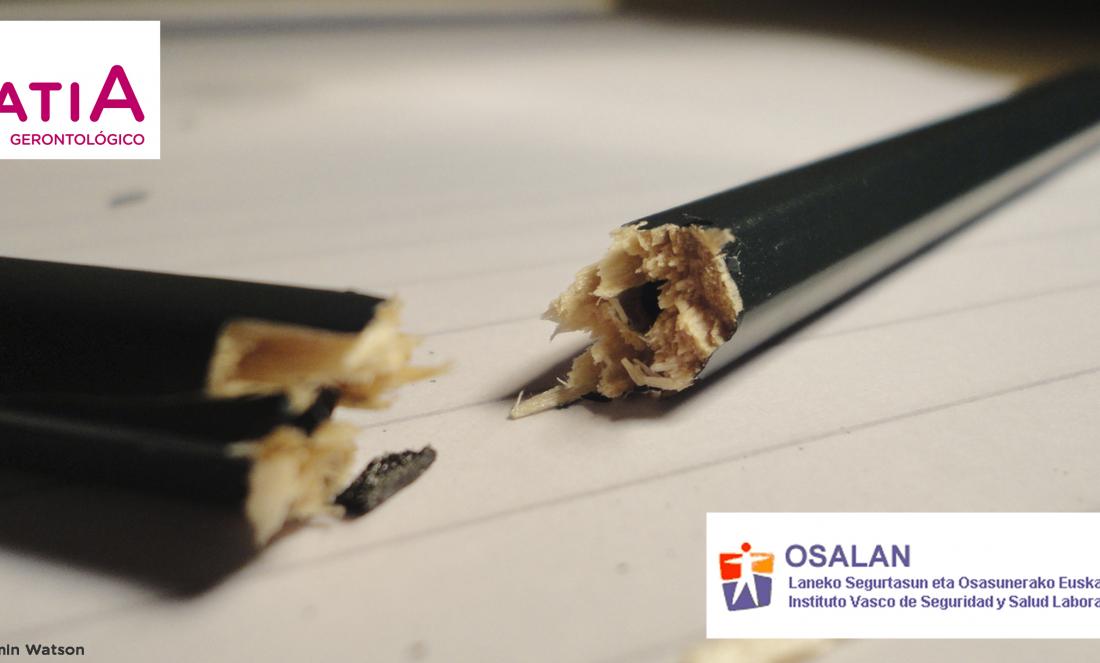
Study and intervention on the emotional functioning of health professionals for the prevention of Burnout
Caring for the elderly has been characterised as a high-stress job. Assistants working in gerontological centres are constantly under emotional strain from residents and their families. These demands overburden the assistants mostly due to the frustration they feel in not knowing how to respond adequately to them.
In this sense, the social-emotional competences have been identified as protective variables against work stress and have been related to a better care by the assistants towards the elderly. In spite of this, the training of this type of skills is not taken into account in the training of these professionals. Moreover, there are hardly any intervention programmes designed to provide the assistants with these skills and the effectiveness of the existing ones, in most cases, has not been scientifically proven.
For all the above reasons, the need to develop the SENDOTU project was detected, a research project carried out by Matia Instituto Gerontológico thanks to the funding provided by OSALAN - Basque Institute of Occupational Safety and Health.
The aim of this project is to adapt and implement a socio-emotional education programme to reduce the symptoms associated with burnout syndrome in health assistants who work directly with elderly people and their families. It aims to understand the relationship between organizational variables (time in the profession, work shifts, etc.), personal variables (age, educational level, etc.) and emotional variables (emotional intelligence, empathy, etc.), and the burnout syndrome in health assistants, in order to subsequently design a socio-emotional education programme (SENDOTU) adapted to the real needs and difficulties arising from the professional practice of the assistants. Finally, the aim is to analyse the effectiveness of this programme in reducing the symptoms associated with burnout and its impact on the health and lifestyles of professionals who care for institutionalised elderly people.
A total of 129 health assistants who work in various Gerontology Centres in the province of Gipuzkoa have participated. It is important to point out that, in order to guarantee the ethical viability of the project, the study has been approved by the Care Ethics Committee of Matia Fundazioa / Hurkoa Foundation / Gerozerlan.
In order to contrast the effectiveness of the programme developed, the participants have been randomly divided into experimental group (those who have participated in the SENDOTU programme) and control group (those who have not received social-emotional education). All participants were evaluated by means of an assessment protocol created for this purpose before and after the implementation of the socio-emotional education programme.
Results:
The assistants who participated in the study are mostly women and have an average age of 43. They have been in the profession for an average of 8 years, although in their current position they have had an average of 5 years' seniority. They refer to be in interaction with the residents 7 hours a day, which is a large part of their working day.
At the beginning of the study, that is, before the application of the programme, the experimental group and the control group presented very similar scores in the variables studied. Nor were any differences observed in the control group between the initial and final evaluation. The experimental participants, however, presented after the intervention:
- Less feeling of being saturated and emotionally tired from work
- Less feelings of discomfort and anxiety when they witness negative experiences from others
- Less difficulty in identifying and describing feelings
- More ability to incorporate their emotions into their decision-making process and decisions involving others.
Moreover, after the intervention, the experimental group presents in comparison with the control:
- Greater ability to open up to feelings and to modulate them both in oneself and in others
- Better perception of your health.
Conclusion:
This study shows that it is possible to improve the burnout syndrome by providing social and emotional skills to health assistants.
Through the application of this socio-emotional education programme, it has been possible to improve the handling or management of emotions by the assistants and to reduce the level of symptoms associated with burnout in these professionals.
Therefore, it is considered important to train the assistants in social and emotional aspects, in order to prevent burnout and improve the quality of care provided to dependent elderly people. In this sense, the SENDOTU programme could be a very useful tool, due to its proven effectiveness and ease of application.

Add new comment